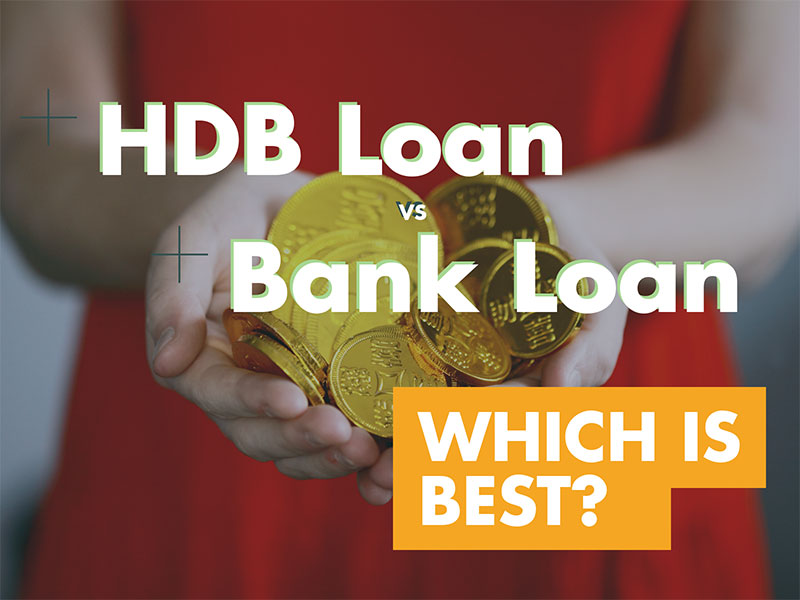
You’ve trawled through the HDB website, looked at various bank offerings, and are still undecided as to whether an HDB or a bank loan would be best for you.
I mean, the 2.6% per annum concessionary loan rate from HDB seems high, considering there are banks offering interest rates around 2% per annum – sometimes lower.
But then banks will only loan you up to 75% of the purchase price; HDB will loan you up to 90%. Bank loans also require you to fork out 5% in cash for the downpayment; HDB allows you to cover it entirely with your CPF. Sigh. Which one should you choose?
At the end of the day, deciding which loan is best for you boils down to three main factors: your savings, risk appetite, and income variability.
Let’s go through each of those three aspects together.
The difference between a bank loan and HDB loan isn’t just the interest rate. Bank loans also typically require more expenses in terms of:
• Legal fees for processing of loan
• Admin / legal fees for refinancing of loan
• Legal fees for title change in the event of the death of the co-owner
• Early repayment / redemption penalties
• More expensive home insurance
• Late payment fees if you miss your loan installment
And that’s on top of all the associated expenses you’ll incur when purchasing an HDB.
Since Sengkang is one of the most popular HDB towns, we’ll take a brand new $500,000 5-room flat there as our example:
| HDB Loan | Bank Loan | |
| Cash Required Upfront |
|
|
| Cash Required Upon Key Collection |
|
|
| Loan-to-Value Limit (LTV) | 90% of purchase price | 75% of purchase price |
| Late Payment Penalties | 7.5% per year | Varies depending on the bank. Usually around $50 per late repayment. |
In short, go with an HDB loan if:
Go with a bank loan if:
With a bank loan’s lower interest rate, it can mean an extra couple thousand dollars in your pocket every year.
Savvy investors know how to put this money to good use. If you put the savings into dividend-yielding assets, this can easily cover the extra costs associated with a bank loan – and give you a bit of pocket money too.
But that rests on one huge assumption: that you know how to invest.
It also requires you to be comfortable with having to refinance your bank loan every few years for the lowest interest rates.
If you’d much rather have a steady interest rate and a loan you don’t have to keep refinancing, then go with HDB instead.
After all, if you change your mind later on and decide to start investing, you can always refinance your HDB loan with a bank loan in future. HDB won’t charge you an early repayment penalty.
The last factor to consider is how likely you are to miss loan instalments in the next few decades.
If you’ve got variable income (such as commissions from a sales job), you might see peaks and troughs in the money coming in from one month to the next. Not only does this create anxiety over covering your family’s basic needs, but the late payment penalties from a bank loan can amount to quite a burden.
HDB is far more lenient.
For example, if you lose your job (touch wood!), you can work with HDB to restructure your loan or defer payments until you find work.
Banks, on the other hand, are far less lenient than HDB. They typically hate repossessing property, but they won’t hesitate to seize your flat if you test their patience too much.
Was this article helpful? Good things must share!
Meiling is an American-born Chinese living in Singapore. As a property owner herself, she enjoys doing research into the local real estate market and making highly technical topics easy to understand for readers. In her spare time, Meiling enjoys going for a long run or snuggling into her armchair with a good book.